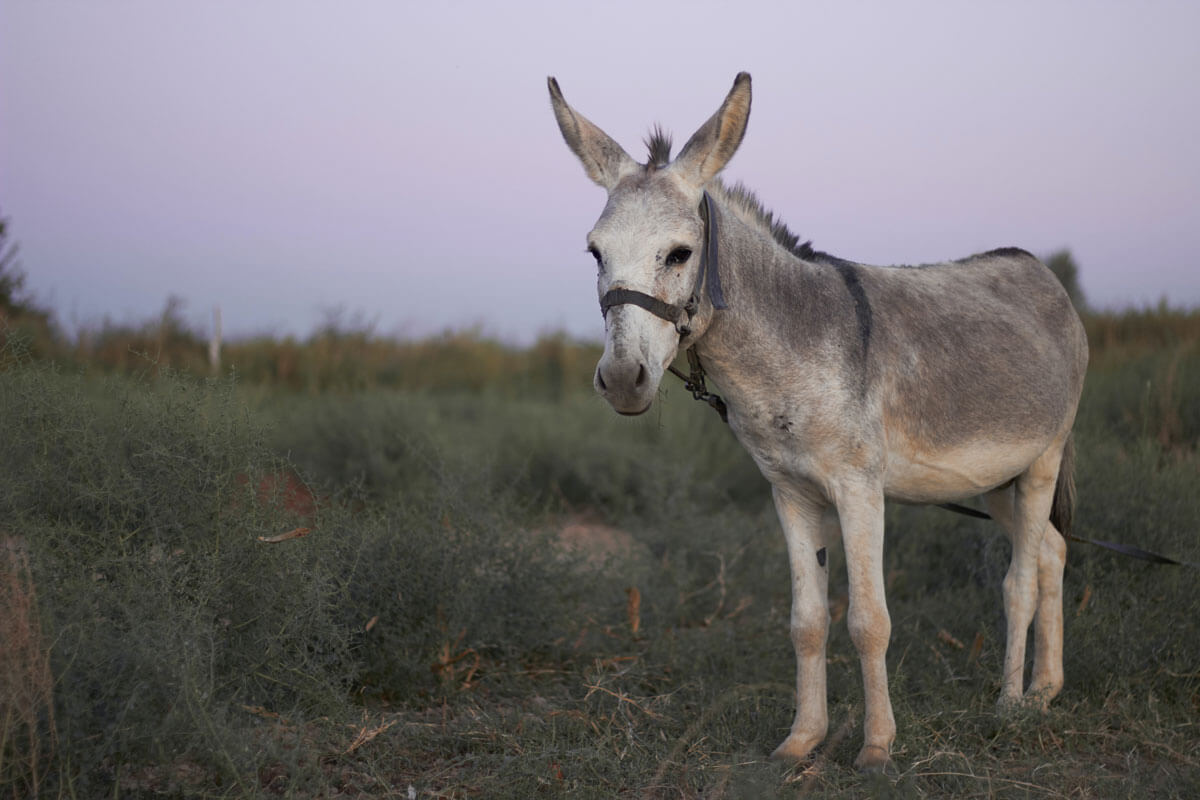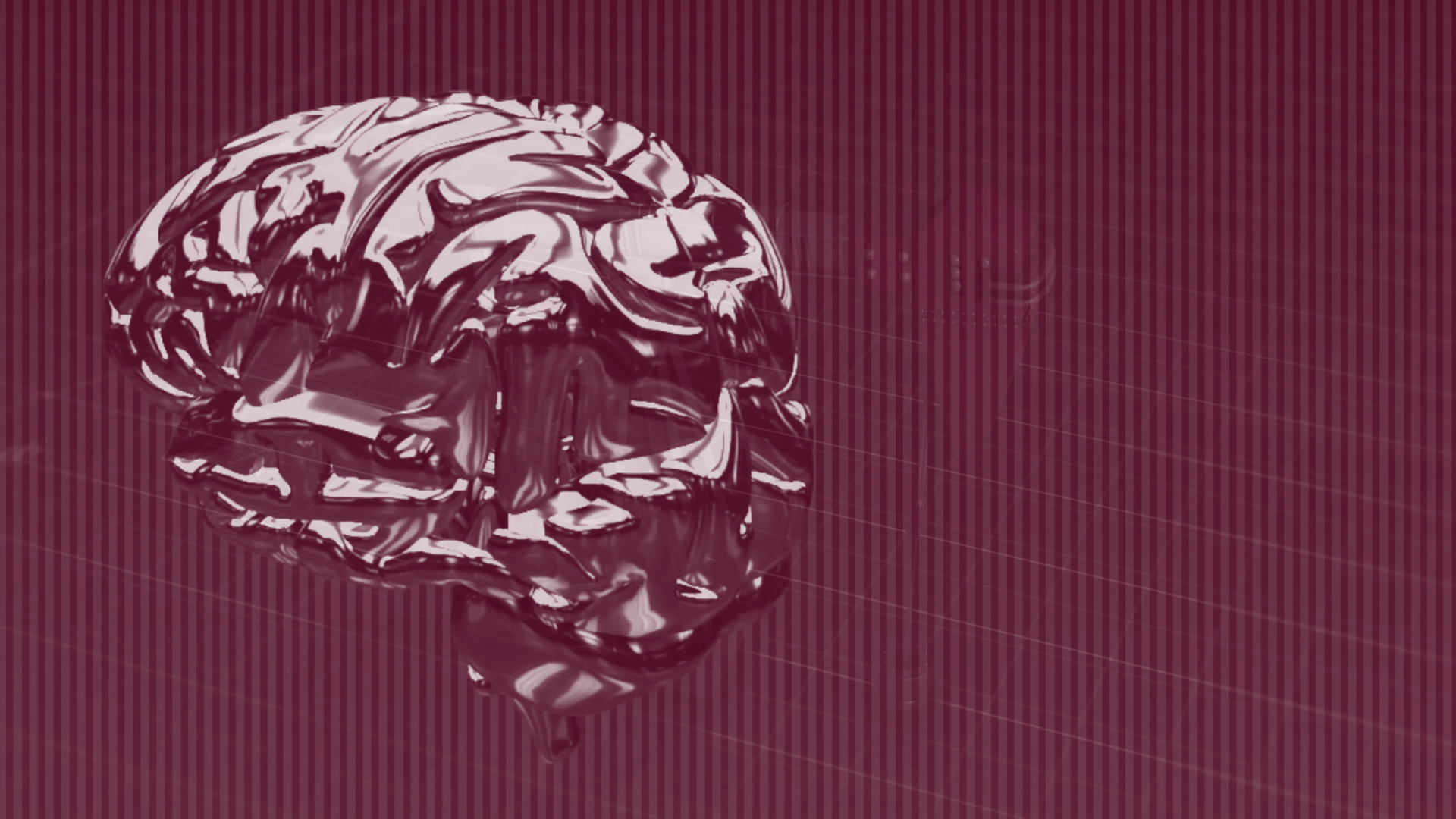A zen parable tells the story of a mother and father who brought their daughter to a monk who lived in the desert. Greeting the monk, the parents said, “We’re sorry to disturb you, but we need your help. An evil wizard cast a spell and turned our daughter into a donkey, as you can see. We humbly ask you to free her from the wizard’s curse.”
The monk looked at them silently for a few moments, then invited them in. As they sat, the monk asked the little girl if she was hungry. She said yes, so the monk prepared food for her and spoke with her quietly and gently while she ate.
The parents were deeply moved by the monk's affection toward their daughter. As they watched, their eyes became unclouded, and they could see that their daughter was not a donkey; she was herself. Suddenly they realized that the spell had been cast on them, and made them believe that their daughter was transformed into something other than what she always was. They expressed their gratitude to the monk, and so did the little girl—for it is difficult to live in a home where everyone thinks you are a donkey.
This story is an analogy of the experience of many who are suffering from mental health and substance use disorders, unable to move forward due to the tangling and compounding of biopsychosocial challenges and threatening injunctions of structural powers.
The daughter represents the experience of those who cannot experience the joy of being accepted as themselves, but instead live as outsiders: unseen, unheard, misunderstood, and misrepresented. The parents represent the power structures and the social and cultural systems that wrongly name, mistreat, marginalize, socially suppress, or wrongly medicalize social issues and human differences in a manner that is threatening to a person's identity and overall way of life.
Though the story ends well, this parable teases us to read beyond the text and take a closer look at the monk's methodology. Notice that he does not readily accept the presented diagnosis as the problem or try to change anyone's mind. He does not try to label or fix the little girl, for he is aware of the wizard and his ways. Without miracles or potions, using only awareness, the monk acts with kindness, protects human rights, and stands for social justice by revealing the true nature of the spell, bringing peace to the little girl and reuniting the family.
The monk represents those people and groups reimagining care, reframing the standards of normalcy, and rehumanizing others through acceptance and the creative cultivation of alternative approaches and spaces that lead people to develop a meaningful life; one that allows them to feel accepted at home and in society.
Emphasize your product's unique features or benefits to differentiate it from competitors
In nec dictum adipiscing pharetra enim etiam scelerisque dolor purus ipsum egestas cursus vulputate arcu egestas ut eu sed mollis consectetur mattis pharetra curabitur et maecenas in mattis fames consectetur ipsum quis risus mauris aliquam ornare nisl purus at ipsum nulla accumsan consectetur vestibulum suspendisse aliquam condimentum scelerisque lacinia pellentesque vestibulum condimentum turpis ligula pharetra dictum sapien facilisis sapien at sagittis et cursus congue.
- Pharetra curabitur et maecenas in mattis fames consectetur ipsum quis risus.
- Justo urna nisi auctor consequat consectetur dolor lectus blandit.
- Eget egestas volutpat lacinia vestibulum vitae mattis hendrerit.
- Ornare elit odio tellus orci bibendum dictum id sem congue enim amet diam.
Incorporate statistics or specific numbers to highlight the effectiveness or popularity of your offering
Convallis pellentesque ullamcorper sapien sed tristique fermentum proin amet quam tincidunt feugiat vitae neque quisque odio ut pellentesque ac mauris eget lectus. Pretium arcu turpis lacus sapien sit at eu sapien duis magna nunc nibh nam non ut nibh ultrices ultrices elementum egestas enim nisl sed cursus pellentesque sit dignissim enim euismod sit et convallis sed pelis viverra quam at nisl sit pharetra enim nisl nec vestibulum posuere in volutpat sed blandit neque risus.

Use time-sensitive language to encourage immediate action, such as "Limited Time Offer
Feugiat vitae neque quisque odio ut pellentesque ac mauris eget lectus. Pretium arcu turpis lacus sapien sit at eu sapien duis magna nunc nibh nam non ut nibh ultrices ultrices elementum egestas enim nisl sed cursus pellentesque sit dignissim enim euismod sit et convallis sed pelis viverra quam at nisl sit pharetra enim nisl nec vestibulum posuere in volutpat sed blandit neque risus.
- Pharetra curabitur et maecenas in mattis fames consectetur ipsum quis risus.
- Justo urna nisi auctor consequat consectetur dolor lectus blandit.
- Eget egestas volutpat lacinia vestibulum vitae mattis hendrerit.
- Ornare elit odio tellus orci bibendum dictum id sem congue enim amet diam.
Address customer pain points directly by showing how your product solves their problems
Feugiat vitae neque quisque odio ut pellentesque ac mauris eget lectus. Pretium arcu turpis lacus sapien sit at eu sapien duis magna nunc nibh nam non ut nibh ultrices ultrices elementum egestas enim nisl sed cursus pellentesque sit dignissim enim euismod sit et convallis sed pelis viverra quam at nisl sit pharetra enim nisl nec vestibulum posuere in volutpat sed blandit neque risus.
Vel etiam vel amet aenean eget in habitasse nunc duis tellus sem turpis risus aliquam ac volutpat tellus eu faucibus ullamcorper.
Tailor titles to your ideal customer segment using phrases like "Designed for Busy Professionals
Sed pretium id nibh id sit felis vitae volutpat volutpat adipiscing at sodales neque lectus mi phasellus commodo at elit suspendisse ornare faucibus lectus purus viverra in nec aliquet commodo et sed sed nisi tempor mi pellentesque arcu viverra pretium duis enim vulputate dignissim etiam ultrices vitae neque urna proin nibh diam turpis augue lacus.
%202.svg)


